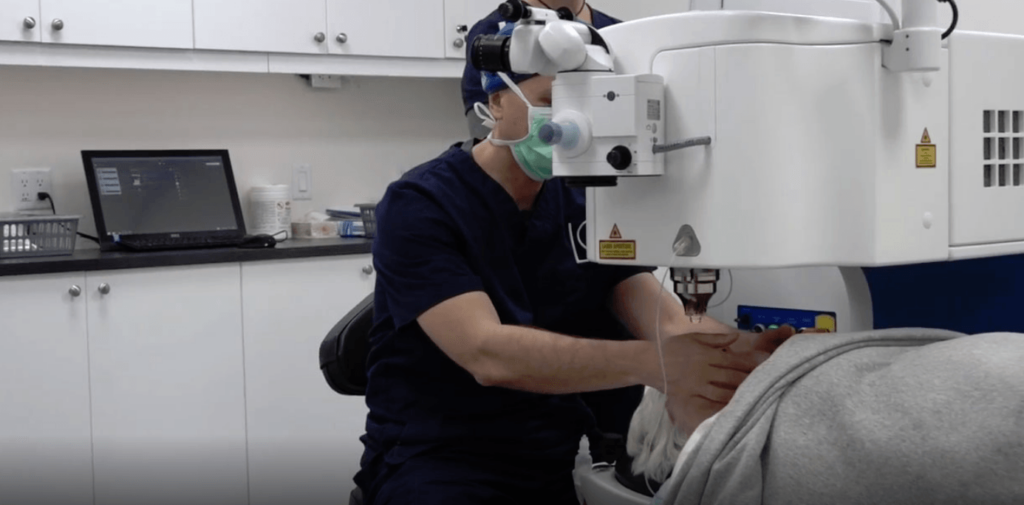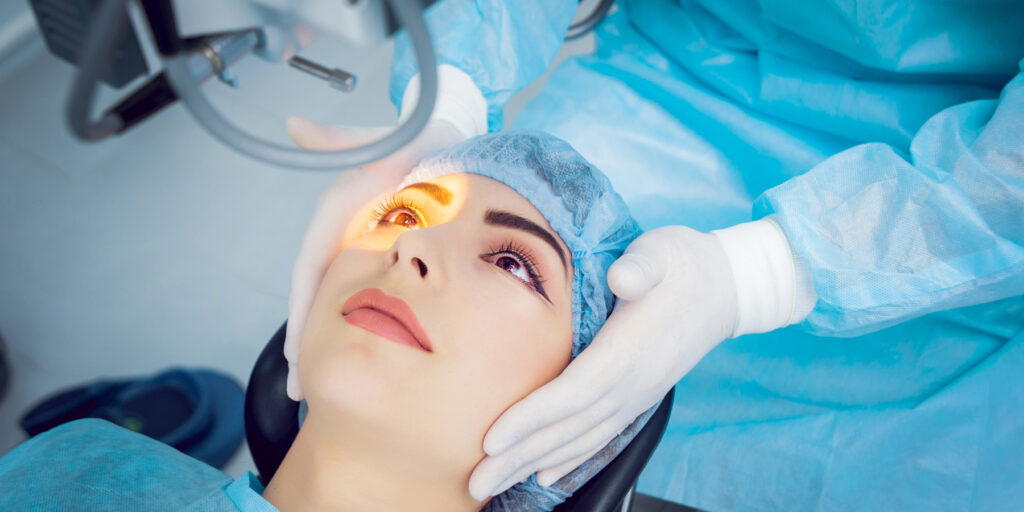If you are in the age range of 25 and above and are wanting to choose laser eye surgery, you are most likely asking yourself in case your age matters. Effectively, in this post, you will find out how your age impacts your laser eye surgery.
Laser eye surgery: 25-40
In most cases, most laser eye surgery eye doctors agree on 25 40 as the perfect age range for laser eye surgery candidacy for a couple factors. By the age of 25, eyeglasses and also contact lens prescriptions have probably stabilized. A stable prescription is among the hallmarks of an excellent laser eye surgery candidate. Prior to the age of 25, the prescription of yours might still be changing.
Laser eye surgery: 40-55
Even in case you are fortunate enough to get ideal vision for the entire life of yours, it is much more likely that you will end up going for some reading glasses after you turn forty. Which does not mean you will not be regarded as an excellent laser eye surgery candidate, however. In case you are a non-smoker in health that is good without any record of health issues, you’ve an excellent possibility of being provided the green light on the process by your laser eye surgery eye surgeon. A family history of corneal problems, glaucoma, as well as diabetes are considerations for this particular age group.
Laser eye surgery: 56 & Above
There’s simply no upper limit preventing seniors from getting laser eye surgery, though a lot of elements should be looked at before a senior person qualifies as a candidate. Cataracts, a watch condition frequently affecting seniors, is among the causes for someone within this age group to be seen as ineligible. If you’ve arrived at the age of sixty with clear eyesight, you may remain regarded as a great prospect. If cataracts have created, it turns into the top priority for medical treatment but doesn’t exclude a patient from future laser eye surgery or any other refractive lens surgeries. You must also let your eye doctor know about any drugs you’re taking during the consultation of yours.

In case you are fed up with using vision correction lenses, there is another option offered. laser eye surgery is a corrective eye method that treats many vision problems as myopia, astigmatism, and hyperopia.
What’s laser eye surgery?
Laser eye surgery stands for laser assisted in situ keratomileusis. As the title suggests, the treatment utilizes an extremely specialized laser known as an excimer laser to completely improve the cornea (the transparent front covering of the eye).
Using a laser or a microkeratome, a specialized eye surgeon will develop a thin flap in the cornea of yours. Lifting the light flap is going to provide a chance to access the underlying corneal tissue, called the stroma.
The excimer laser might get rid of microscopic amounts of tissue in a pre specified pattern based on your refractive vision and error must have.
This reshapes the cornea, making it possible for the light being better focused entirely on the retina.
When you are contemplating getting laser eye surgery completed, your eye doctor is going to perform an extensive eye examination and assess your surgical and medical history. The doctor of yours is going to make a note of any likely irregularities in the cornea of yours and confirm whether you’re a great prospect for laser eye surgery.
While laser eye surgery is a medical procedure, be confident the procedure comes with a good safety profile. Recent advances such as for instance the improvement of the femtosecond laser plus wavefront technology have allowed for greater accuracy during the operation.
Today, laser eye surgery is minimally invasive and fairly simple, particularly if carefully assessed beforehand.
It is an outpatient procedure which can be performed within 30 minutes. That said, it also is a surgical treatment. Understanding how to correctly look after your eyes after the procedure cuts down on the chances of complications.
Below are some useful aftercare tips to make certain you see the perfect outcome.
1. Implement care tips right after the process
After surgery, almost every single patient suffers from a level of discomfort.
Every patient does respond to pain differently, so this may vary from becoming a very moderate discomfort to the sensation of burning or even tearing. During the first 6 hours after surgery, you are also very likely to experience light sensitivity. It’s much better to simply sleep this time off for a couple of hours.
The surgeon of yours may recommend you plenty of medication for in case you are experiencing pain, and a number of eye drops. This helps reduce eyes that are dry and prevent infection. You will be also provided protective eye shields to guard the eyes of yours from light that is bright preventing some eye rubbing.
Your eye shields must in addition be used for the very first 4 or maybe 5 nights after your surgery to stay away from some subconscious eye rubbing when you rest.
While you might have vision that is clear soon after the process, it is unsafe to drive on your own, on account of weeping and glare. Have a friend or loved one organize the transport home of yours.

2. Rest up
The very first couple of hours after surgery are probably the most crucial. It is suggested that when you get home, take a great deal of nap. This can help you avoid some activities which may strain the eyes of yours.
Going for a very long nap will likewise assist letting the majority of the discomfort pass and allow the eyes of yours to begin healing.
3. Do not rub the eyes of yours
While it’s already been stated, it bears repeating. After the surgery of yours, fight the desire to rub or touch the eyes of yours, especially during the first 7 days. Doing this could dislodge the flap and also cause postoperative complications.
If your eyes feel especially itchy, you are able to use the lubricating eye drops your eye doctor prescribed for grittiness and comfort.
4. Administer your eye drops as recommended
Speaking of eye drops, you must stick to your physician ‘s prescribed routine. This would mean administering them at certain times during the day. Following your doctor ‘s guidance is going to ensure the very best results while minimizing dryness and inflammation.
Clean the hands of yours before administering the drops to stay away from possible infections.
5. Take a bath
While you are able to shower the day after the procedure, it is suggested you are taking a water. This can help you avoid getting some water or soap into the eyes of yours. Any drinking water exposure could wrinkle the corneal flap and also boost the chance of problems.
In case you have to have a bath, keep the eyes of yours closed, bath from the back of yours, and stay away from getting the immediate stream of the bathtub water into your eyes. Only gently dab your closed eyes without rubbing. Use a Lubricant drops after your shower or bath, in case it’s not even the due time of the medicines.
And as a rule, avoid places as spas, hot tubs, and swimming pools for no less than 7 times after the surgery of yours.
More to read:
CPAP masks: Problems associated with mouth breathing

